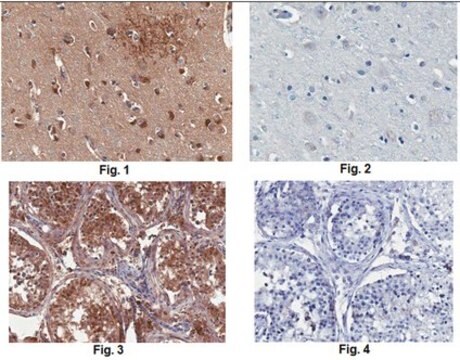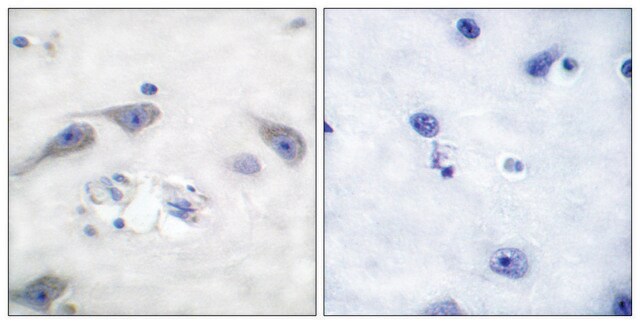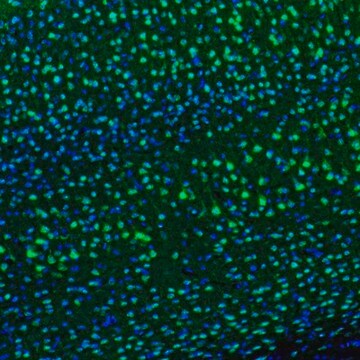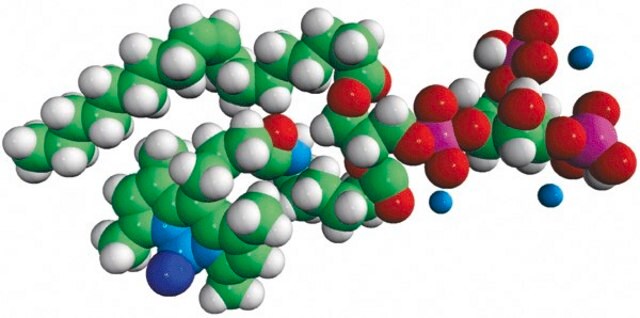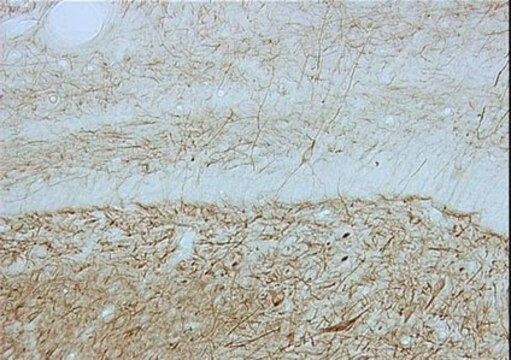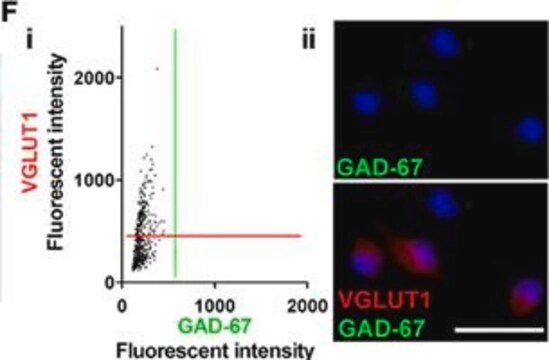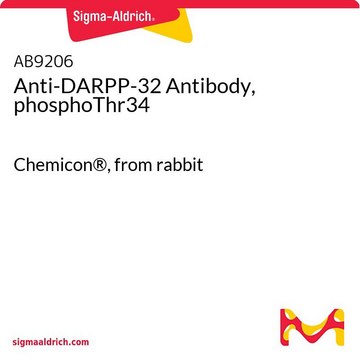AB10518
Anti-DARPP-32 Antibody
from rabbit, purified by affinity chromatography
Synonyme(s) :
protein phosphatase 1, regulatory (inhibitor) subunit 1B, dopamine and cAMP-regulated neuronal phosphoprotein 32, dopamine and cAMP regulated phosphoprotein, protein phosphatase 1 regulatory subunit 1B, Dopamine- and cAMP-regulated neuronal phosphoprotei
About This Item
Produits recommandés
Source biologique
rabbit
Niveau de qualité
Forme d'anticorps
affinity isolated antibody
Type de produit anticorps
primary antibodies
Clone
polyclonal
Produit purifié par
affinity chromatography
Espèces réactives
rat, mouse, rhesus macaque
Réactivité de l'espèce (prédite par homologie)
canine (based on 100% sequence homology), rhesus monkey (based on 100% sequence homology)
Technique(s)
immunoprecipitation (IP): suitable
western blot: suitable
Numéro d'accès NCBI
Numéro d'accès UniProt
Conditions d'expédition
wet ice
Modification post-traductionnelle de la cible
unmodified
Informations sur le gène
mouse ... Ppp1R1B(19049)
Description générale
Spécificité
Immunogène
Application
Neurotransmitters & Receptors
Ion Channels & Transporters
Immunoprecipitaion Analysis: 10 µg of this antibody from a previous lot immunoprecipitated DARPP-32 from rat brain RIPA lysate.
Qualité
Western Blot Analysis: 0.1 µg/mL of this antibody detected DARPP-32 on 10 µg of rat brain tissue lysate.
Description de la cible
Liaison
Vous ne trouvez pas le bon produit ?
Essayez notre Outil de sélection de produits.
Code de la classe de stockage
12 - Non Combustible Liquids
Classe de danger pour l'eau (WGK)
WGK 1
Point d'éclair (°F)
Not applicable
Point d'éclair (°C)
Not applicable
Certificats d'analyse (COA)
Recherchez un Certificats d'analyse (COA) en saisissant le numéro de lot du produit. Les numéros de lot figurent sur l'étiquette du produit après les mots "Lot" ou "Batch".
Déjà en possession de ce produit ?
Retrouvez la documentation relative aux produits que vous avez récemment achetés dans la Bibliothèque de documents.
Notre équipe de scientifiques dispose d'une expérience dans tous les secteurs de la recherche, notamment en sciences de la vie, science des matériaux, synthèse chimique, chromatographie, analyse et dans de nombreux autres domaines..
Contacter notre Service technique